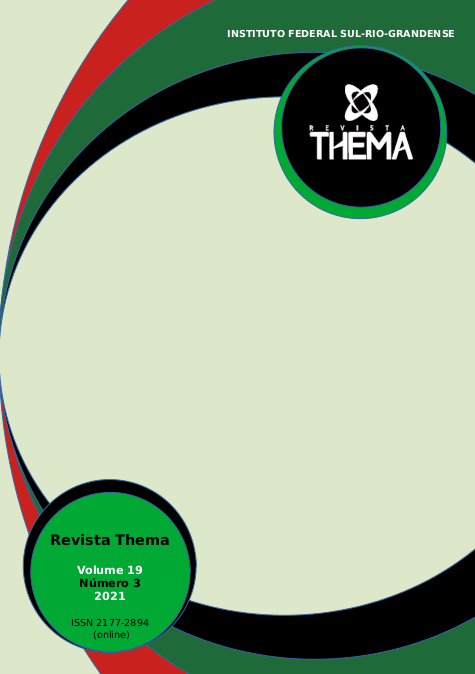Óleos essenciais no controle in vitro de Sclerotinia sclerotiorum
DOI:
https://doi.org/10.15536/thema.V19.2021.615-622.2367Abstract
White mold is a pathogen that affects agricultural crops, especially soybeans. The management of the disease is based on cultural, chemical and biological control measures. The objective of this research was to evaluate the effect of plant extracts and essential oils on the growth of Sclerotinia Sclerotiorum. The experiment was conducted in a completely randomized design, with 6 treatments and 5 repetitions. The treatments consisted of vegetable extracts of garlic, rosemary and essential oils of propolis, clove and tea tree, in addition to the witness. To determine the antifungal activity of plant extracts, monosporic isolation of Sclerotinia Sclerotiorum was performed to obtain pure colonies. Mycelial growth, percentage of growth inhibition and mycelial growth rate were evaluated. The evaluations were carried out at 3 days and after at intervals of seven days, until the colonies reached the entire surface of the culture medium. The garlic extract showed partial inhibition of the mycelial growth of the fungus. Rosemary extract and essential oils of propolis, clove and tea tree are effective for the in vitro control of Sclerotinia sclerotiorum.
Downloads
Downloads
Published
How to Cite
Issue
Section
License
O autor responsável pela submissão representa todos os autores do trabalho e, ao enviar o artigo para a revista, está garantindo que tem a permissão de todos para fazê-lo. Da mesma forma, assegura que o artigo não viola direitos autorais e que não há plágio no trabalho. A revista não se responsabiliza pelas opiniões emitidas.
A Revista Thema é de acesso aberto (Open Access), sem que haja a necessidade de pagamentos de taxas, seja para submissão ou processamento dos artigos. A revista adota a definição da Budapest Open Access Initiative (BOAI), ou seja, os usuários possuem o direito de ler, baixar, copiar, distribuir, imprimir, buscar e fazer links diretos para os textos completos dos artigos nela publicados.
Todos os artigos são publicados com a licença Creative Commons Atribuição-NãoComercial 4.0 Internacional. Os autores mantém os direitos autorais sobre suas produções, devendo ser contatados diretamente se houver interesse em uso comercial dos trabalhos.





